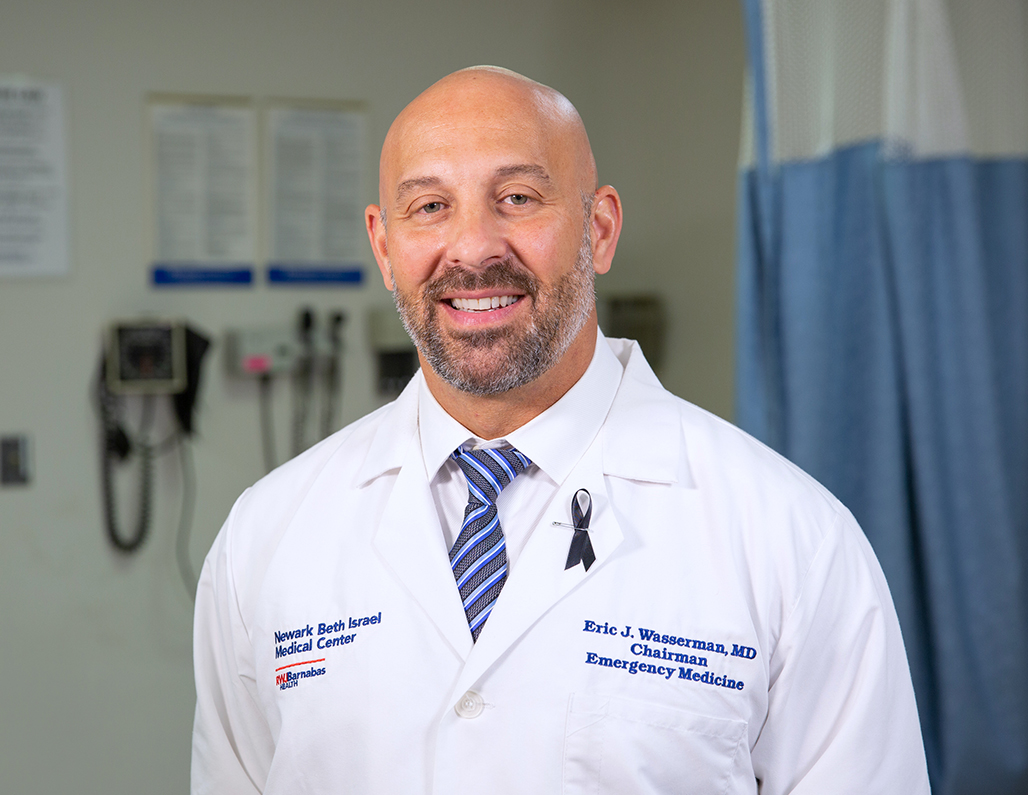 Don’t hesitate to get expert care when needed.
Don’t hesitate to get expert care when needed.
“One of the unfortunate outcomes of the pandemic has been that some patients who should have come to the Emergency Department didn’t because they were afraid of COVID-19,” says Eric Wasserman, MD, Chairman and Medical Director of the Emergency Department (ED) at Newark Beth Israel Medical Center.
“If you need to come in, don’t hesitate,” he advises. “Our ED is safe and we will keep you safe.”
What symptoms should send you to the ED? “Often, patients can sense when something significant is going on with their health,” says Dr. Wasserman. “Don’t worry if it turns out your condition isn’t life-threatening. If you’re concerned enough to come in, we’re more than happy to care for you.”
An injury like a broken bone or a deep cut is, of course, an obvious call for an ED visit. Dr. Wasserman also offers these general guidelines:
CHEST PAIN: Go to the ED if the pain is a type you haven’t had before, especially if it’s more intense or longer-lasting. “Come in so we can evaluate you and perform the appropriate tests,” says Dr. Wasserman.
FEVER: Head to the ED if fever is persistent or accompanied by shaking and chills, which could be a sign of infection that has moved to the bloodstream. For children, go if fever is accompanied by lethargy or lack of appetite.
BREATHING PROBLEMS: Call 911 any time you’re experiencing shortness of breath, especially if you have a chronic respiratory issue such as asthma or COPD. Emergency responders can help stabilize you with oxygen and medications before you get to the ED.
ABDOMINAL PAIN: If the pain is accompanied by a fever or is localized to one particular area of your abdomen, you should go to the ED. You should also go if the pain is accompanied by severe vomiting or persistent diarrhea.
A BLOW TO THE HEAD: Loss of consciousness or vomiting after head trauma are worrisome. If you have these symptoms, or if you are taking blood thinners, are elderly or have symptoms such as weakness, numbness or dizziness, call 911.
STROKE OR NEUROLOGICAL SYMPTOMS: If you experience weakness or numbness in any part of the body or a change in vision or speech, call 911.
“Whenever you come to the ED, you will receive the same high level of care, no matter how mild or severe your symptoms,” says Dr. Wasserman. “We are here for our community 24/7.”
CARE FOR COVID-19
Monoclonal antibody treatment, an infusion that bolsters the immune system, is available in the Emergency Department at RWJBH facilities. To qualify, patients must test positive for COVID-19, be in a high-risk category, not be oxygen-dependent and not require hospitalization. If you feel you are a candidate, come to the ED or speak with your primary care provider.
SAFETY IN THE ED
- Every precaution has been taken to protect patients, visitors and staff.
- On arrival, each patient is evaluated for possible COVID-19 symptoms. If COVID-19 is suspected, the patient will be put into a separate, thoroughly sanitized area.
- All rooms in the hospital are continuously and thoroughly cleaned with the latest robotic equipment and most effective products.
- All patients and all staff wear masks and keep socially distant according to Centers for Disease Control and Prevention recommendations.
- All staff wash hands when entering and when leaving a patient’s room. Staff put on fresh personal protective equipment (masks, gowns, gloves) each time they enter a room and discard it when they leave.
In an emergency, call 911.